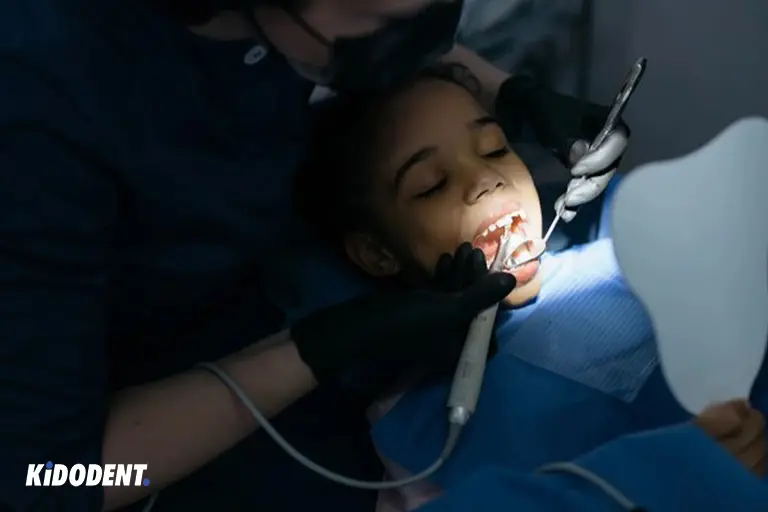Dental anxiety is an ongoing concern that many children have when they visit the dentist. It is natural for kids to be afraid or apprehensive about dental appointments because the dental office can be a strange and sometimes scary atmosphere. When dental anxiety gets severe, it might prevent children from obtaining the necessary dental treatment for good oral health. Understanding dental anxiety in children is critical for providing positive dental experiences and laying the groundwork for a lifetime of excellent oral hygiene practices as parents and caregivers. In this post, we will look at what causes dental anxiety in children, how it affects oral health, and how to assist children in overcoming their anxieties during dental appointments.
Causes of Dental Anxiety in Children
Fear of the Unknown
Children, by nature, are often wary of unfamiliar situations, and the dental office can present an array of new sights, sounds, and sensations. The hum of a dental drill, the unfamiliar taste of dental products, or simply the sensation of someone probing their mouth can be unsettling for young patients. This apprehension often stems from not knowing what to expect. Educating children beforehand about what happens during a dental visit can alleviate some of this anxiety.
Junior Smiles of Stafford, a top pediatric dentist in Fairfax, VA, understands this aspect profoundly. Their team is dedicated to creating an environment where children feel informed and in control. By offering interactive demonstrations and child-friendly explanations, they diminish the fear of the unknown, transforming the dental visit into a more approachable and even enjoyable experience.
Previous Negative Experiences
If a child has previously had a painful or unpleasant dental experience, it might have a long-term influence on their impression of dental appointments. When it comes to future dental appointments, negative memories might cause worry and anxiety.
Media Influence
Children may acquire dental anxiety due to what they watch on television or hear about dental treatments from others. Media representations of dental appointments might lead to misconceptions and unwarranted concerns.
Parental Anxiety
Children are extremely sensitive to their parents’ feelings. If their parents are anxious or fearful about going to the dentist, their children may mimic similar sentiments and develop their own dental phobia.
Impact of Dental Anxiety on Oral Health
Dental anxiety can have severe consequences for a child’s dental health. When children are anxious, they may avoid or decline dentist appointments entirely. This avoidance can result in delayed or skipped dental procedures, potentially leaving oral concerns untreated and progressing into more severe complications.
Children with dental anxiety might neglect their home oral hygiene practice because they fear brushing or flossing may cause pain or discomfort. As a result, they may be more prone to cavities, gum disease, and other dental issues.
Strategies to Overcome Dental Anxiety in Children
Choose a Pediatric Dentist with a Child-Friendly Environment
Look for a dental practice that treats children and has a child-friendly atmosphere. Pediatric dentists are specially educated to work with children, offering a warm and pleasant environment that can help them relax.
Start Early and Gradually
Introduce dental appointments to children as early as possible to acquaint them with the dentist’s office setting. As the kid grows older, gradually increase the complexity of the appointments, easing them into more complete dental operations.
Communicate Openly
Discuss dentist visits with your child in a friendly and comforting tone. Explain the appointment and answer any worries they may have. Encourage them to open up and share their emotions.
Use Positive Reinforcement
Praise and praise your child for attending the dentist and maintaining good oral hygiene. Positive reinforcement can assist kids in associating dental appointments with pleasant experiences.
Distraction Techniques
Distraction tactics can be beneficial in diverting a child’s attention away from dental treatments during dental appointments. Bring a favorite toy or book to the visit, or request that the dentist utilize age-appropriate diversions during the treatments.
Sedation Dentistry
Sedation dentistry may be an option in extreme cases of dental anxiety. Pediatric dentists can use sedation treatments to assist children to relax and remain peaceful during dental operations.
Behavior Management Techniques for Dental Anxiety
Pediatric dentists utilize behavior management approaches to provide a positive and supportive atmosphere for children with dental fears. These tactics include creating trust, building rapport, and employing non-threatening approaches to make kids feel at ease during dental visits.
Tell-Show-Do Technique
Pediatric dentists commonly employ the tell-show-do strategy for behavior control. It entails explaining the dental treatment to the child in simple language (tell), showing it with dental instruments (show), and then doing it on a non-threatening surface before going on to the child’s teeth (do). This step-by-step strategy teaches kids what to anticipate, decreasing anxiety and uncertainty.
Positive Reinforcement
Offering praise and positive reinforcement during and after dental visits can significantly reduce a child’s dental fear. Small accomplishments, such as sitting still during a checkup or cleaning their teeth thoroughly, assist in boosting confidence and developing a good relationship with dental care.
Conclusion
Understanding dental anxiety in children is the first step toward providing them with positive dental experiences. By addressing the causes of stress and implementing effective strategies, parents and caregivers can ensure that children receive the dental care they need for healthy smiles.
Choosing a pediatric dentist who specializes in working with children can make a significant difference in easing their anxiety and setting the foundation for a lifetime of good oral health habits. Remember, a child’s dental health journey starts with compassion, patience, and gentle guidance, which will help them build confidence and conquer their dental fears.
